
Las acumulaciones de Tau alteran las neuronas promotoras de la estela. Los hallazgos ayudan a explicar por qué las siestas durante el día y las interrupciones del sueño a menudo se informan en pacientes con Alzheimer.

Las acumulaciones de Tau alteran las neuronas promotoras de la estela. Los hallazgos ayudan a explicar por qué las siestas durante el día y las interrupciones del sueño a menudo se informan en pacientes con Alzheimer.
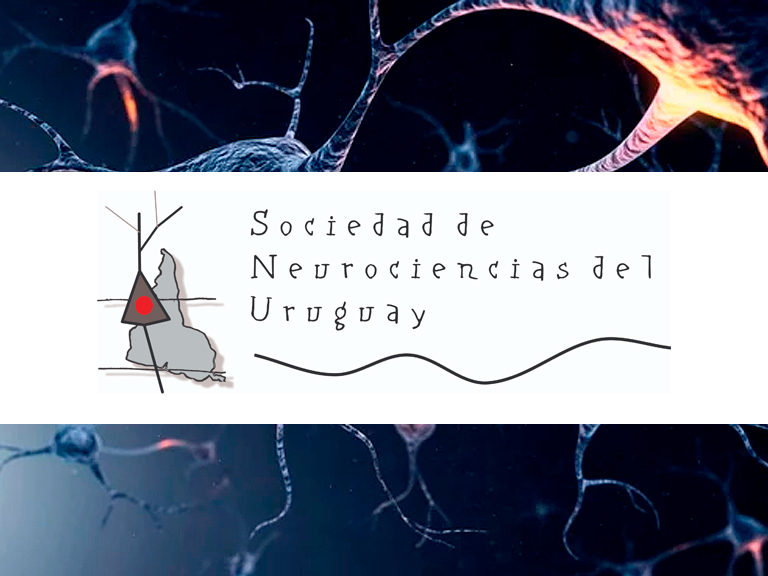
Por la presente deseamos invitarlos a participar del taller LATBrain que tendrá lugar en el Instituto de Investigaciones Biológicas Clemente Estable, Montevideo, Uruguay, el 30 de Agosto y 1o de Setiembre de este año. La Sociedad de Neurociencias del Uruguay quiere comenzar a discutir e intercambiar ideas sobre la posibilidad de generar una Iniciativa Cerebro para América Latina (LATBrain). A tales efectos se desarrollará un Taller con la participación de investigadores coordinadores de Iniciativas Cerebro en curso en otras regiones e Investigadores y autoridades locales y de la región (se adjunta programa). Esta Iniciativa Cerebro busca fomentar la cooperación entre los neurocientíficos, las agencias financiadoras y las autoridades gubernamentales de la región para establecer un plan de actividades concreto que genere un avance en el entendimiento de la función cerebral que redunde en beneficios para el área de las neurociencias, la salud, la enseñanza, y la tecnología, entre otras áreas de la sociedad. Este primer encuentro esperamos sea el primero de una serie de actividades tendientes a crear una Iniciativa Cerebro que, a través de la cooperación entre los países de Latinoamérica, redunde en aportes sustanciales a la ciencia, la educación y la cultura. Los estimulamos a participar de este encuentro y a discutir con sus colegas a nivel local la posibilidad de cooperar en tal sentido.

Santiago, 30 de Julio 2019
Estimados socios de la Sociedad Chilena de Neurociencia:
Por la presente me es grato informarles respecto al proceso de Elección del Nuevo Directorio de la Sociedad Chilena de Neurociencia (SCN). El Directorio de la SCN está constituido por 7 socios, los cuales deben ser elegidos entre los socios regulares. Para renovar nuestra directiva, y de acuerdo a los estatutos de la SCN, se ha nombrado una Comisión Tricel que está constituida por 2 Directores salientes del actual Directorio (los Dres. Paul Délano y Oliver Schmachtenberg) y 3 socios (los Drs. Estela Andrés, Juan Bacigalupo y Gonzalo Terreros). La Dra. Estela Andrés oficiará de presidenta del Tricel. Podrán ser candidatos todos quienes tengan su pago de membresía al día (pago correspondiente a los años 2018-2019)
Como primera etapa en el proceso de elecciones, les solicitamos que vía correo electrónico manifiesten a la Dra. Andrés su interés de ser candidatos para formar parte del nuevo Directorio de la SCN, adjuntando una carta breve en la cual manifiesten explícitamente su compromiso de participar en dicho Directorio por un periodo de 3 años, en caso de obtener una de las 7 mayorías. Esta manifestación de interés y carta compromiso debe enviarse con copia a los correos electrónicos de los otros miembros del Tricel (pdelano@med.uchile.cl, oliver.schmachtenberg@uv.cl, mandres@bio.puc.cl, bacigalu@uchile.cl, gonzalo.tereros@uoh.cl, sociedadchilenaneurociencia@gmail.com).
Se recibirán las candidaturas hasta el día 23 de agosto del 2019
Entre el 26 y el 30 de agosto, el Tricel informará el listado de candidatos y preparará el proceso de votación. Tendrán derecho a voto, los socios regulares con su membresía al día. Se enviará a los socios el voto correspondiente y cada uno podrá votar por 5 candidatos de su preferencia. El Tricel nombrará un apoderado por Institución, quien colectará los votos y los entregará al Tricel. El proceso de votación se extenderá desde el 16 de septiembre hasta el día 4 de octubre del 2019. El Tricel procederá a contar los votos y comunicará el resultado oficial del proceso de votación a todos los socios a más tardar el día 18 de octubre del 2019. El Directorio elegido deberá seleccionar entre sus miembros quien ocupará el cargo de Presidente, Vicepresidente, Tesorero y Secretario General. El nuevo directorio asumirá en propiedad a partir de la asamblea general de socios a realizarse durante la Reunión Anual de la Sociedad Chilena de Neurociencia a efectuarse en La Serena, en el mes de noviembre.
Incentivamos a todos los socios a participar con entusiasmo en el proceso de renovación de la directiva de manera de que cada uno se sienta parte del desafío futuro de robustecer nuestra Sociedad.
Dr. Patricio Rojas M.
Presidente
Sociedad Chilena de Neurociencia
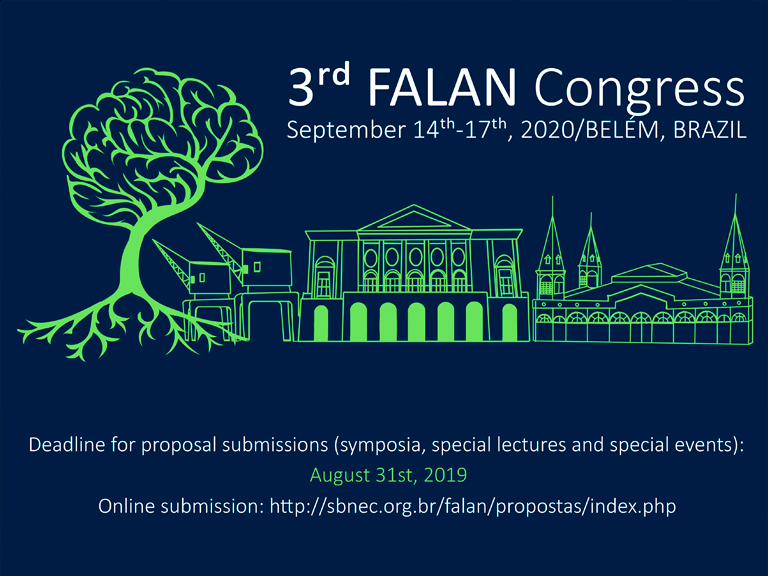
Deadline for proposal submissions (symposia, special lectures and special events):
August 31st, 2019
Online submission: http://sbnec.org.br/falan/propostas/index.php
Invited speakers:
Peter Hagman (Head Dept. Biophysics at the Humboldt Univ. Berlin)
Carmen Sandi (President Fed. Eur. Neurosci. Societies – FENS)
Reunião Anual da Sociedade Brasileira de Neurociências e Comportamento
Reunión Anual de Sociedad Argentina de Investigación en Neurociencias
Reunión Anual de la Sociedad Chilena de Neurociencias
Jornadas de la Sociedad de Neurociencias del Uruguay
Edvard Moser (2014 Medicine & Physiology Nobel Prize)

En 2017 se implementó en Concepción Neuroboxing Parkinson, un programa pionero en el país que busca mitigar los efectos del Parkinson a través del boxeo. La idea es de tres kinesiólogos penquistas.
Teresa Nova jamás pensó dejar el salón de clases. No estaba en sus planes. Fueron 34 años educando a niños de enseñanza básica en la Escuela Lautaro de Nonguén.
En 2008, Teresa comenzó a sentir que sus dedos ya no tenían fuerza, sus manos temblaban, le costaba mucho coordinarse y perdía constantemente el equilibrio, pero los médicos le decían que no tenía nada.
Los malestares la tuvieron con licencia médica por varias semanas, hasta que el médico diagnosticó Parkinson, una enfermedad que afecta al sistema nervioso y que provoca dificultades motoras.
Teresa sabía que los síntomas no desaparecían con el tiempo, al contrario. Así que no tuvo más opción que dejar de hacer clases y jubilar anticipadamente, dejando atrás una vida al servicio de la educación.
Reconoce que su vida dio un giro drástico. De ser una mujer autovalente, pasó a necesitar de la ayuda de otros para actividades cotidianas, como ir de compras o salir a la calle. El miedo a perder el equilibrio y a caerse estaban siempre presentes.
Pero en 2017, a través de un grupo de Facebook, Teresa se enteró de Neuroboxing Parkinson, un programa que prometía rehabilitación y mejoras a los síntomas de la enfermedad a través del boxeo.
Con la ayuda de los kinesiólogos Lorena Bernales, Miguel Pino y Pablo Roa, Teresa logró que la enfermedad no tomara el control de su vida. “Puedo hacer tranquilamente una vida normal, autovalente, porque antes dependía mucho de otras personas”, dice.
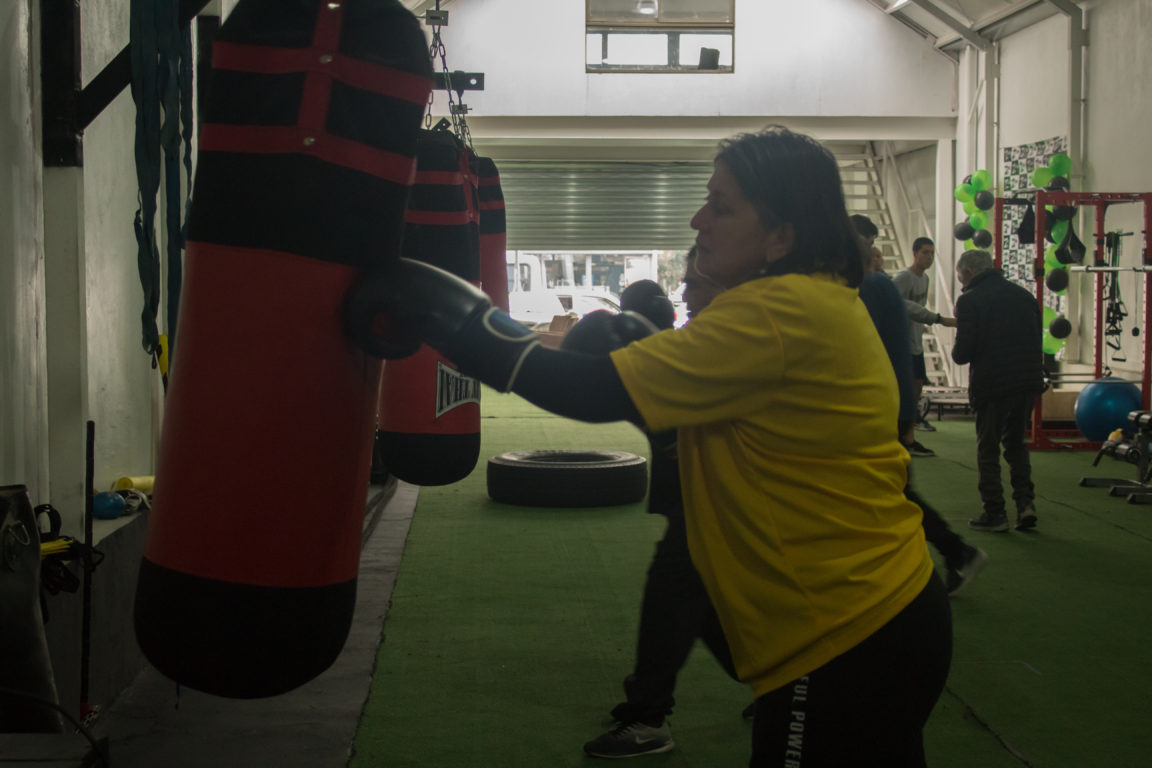
Neuroboxing nació en 2006, en Los Ángeles, Estados Unidos. El programa usa el boxeo como entrenamiento neuro kinésico, para controlar los síntomas motores de las personas que padecen esta enfermedad, como temblores, lentitud de movimientos, rigidez en los brazos, piernas, torso y problemas de equilibrio.
En Latinoamérica no se conocía de este innovador método hasta antes de diciembre de 2016, cuando en Concepción un grupo de kinesiólogos quiso replicar la idea.
Durante 2017 pusieron a prueba el programa piloto. Al principio, la recepción no fue tan buena, especialmente porque se asocia al boxeo como un causante del Parkinson.
En 1984, después de tres años de haberse retirado, el boxeador norteamericano Muhammad Ali, una especie de leyenda para este deporte, fue diagnosticado con la enfermedad.
“Nos costó un poco hacer que la gente nos creyera en primera instancia, pero después de los resultados de la investigación que hicimos, cuando los equipos de salud vieron que no era peligroso y los pacientes pudieron probarlo, practicar y ver que les hacía bien, ahí se empezó a dar más fácil la difusión y las convocatorias”, explica Miguel Pino, kinesiólogo y cofundador de Neuroboxing Parkinson.
El programa, pionero en Chile y también en Latinoamérica, se imparte en Concepción, en el gimnasio Zona Box Fit, avenida Los Carrera 1470. El
equipo de profesionales también cuenta con una sede en Linares y próximamente abrirán un centro en la ciudad de Los Ángeles.

Juan Riffo, diagnosticado con Parkinson a los 59 años, fue de los primeros pacientes en recibir la innovadora terapia. Desde entonces, lleva tres años asistiendo al gimnasio y es parte del grupo de 15 pacientes de Neuroboxing Parkinson en Concepción.
“Ya no me tiemblan las manos. Es muy poco. Siento que no ha avanzado, que ha parado un poco el Parkinson, así que me siento cada vez mejor. Y yo me he dado cuenta de que el boxeo es lo que lo alivia a uno un poco”, comenta Juan.
Un síntoma que alertó a Juan fue el temblor de su mano izquierda. Le dificultaba abrocharse las camisas, por lo que decidió ir al médico, quien le diagnosticó Parkinson.
Luego de haber sido detectada la enfermedad, en 2015, Juan comenzó a realizar ejercicios motrices en su domicilio, junto al kinesiólogo Miguel Pino, quien de hecho, lo invitó a formar parte del programa Neuroboxing Parkinson.
Los resultados fueron positivos para Juan desde un comienzo. Hoy, lleva 3 años entrenando y ha evidenciado mejoras a nivel físico como psicológico.
“Todos los ejercicios que les pedimos acá son de hacer muchas cosas al mismo tiempo (…) Esa es una habilidad que al principio no tienen. Teníamos que hacer tareas muy sencillas y concretas…y ahí uno ve que van mejorando la fuerza, la velocidad y la flexibilidad de su cuerpo”, cuenta el kinesiólogo Miguel Pino.
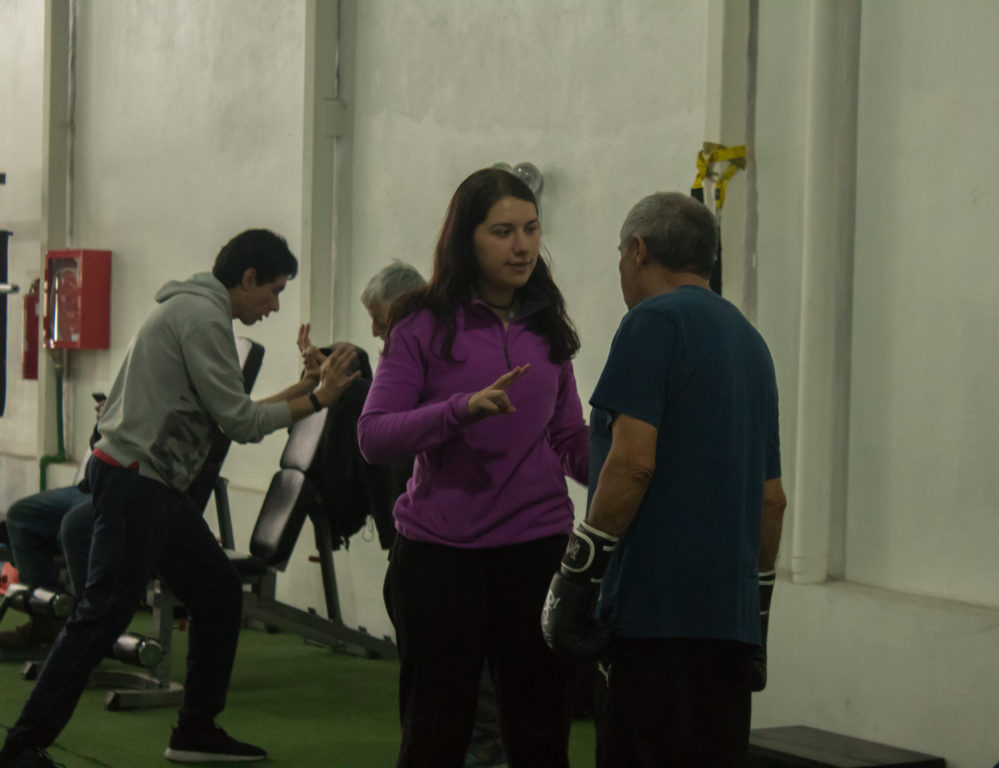
El Parkinson –llamado así por James Parkinson, médico inglés que describió en 1817 por primera vez el trastorno– no solo afecta la musculatura del cuerpo, sino que, al ser un trastorno neurodegenerativo, también causa daño psicológico en quienes lo padecen.
La enfermedad se desarrolla cuando las neuronas que producen dopamina, localizadas en una región cerebral, conocida como sustancia negra, se deterioran o mueren. Cuando se produce el Parkinson los niveles de dopamina disminuyen, generando una anomalía en el cerebro y desencadenando problemas en los músculos y el movimiento del cuerpo.
“Cualquier enfermedad degenerativa es impactante emocionalmente para la persona que lo padece. En este caso, al no querer salir de su hogar, además de tener la enfermedad de Parkinson se le puede agregar un trastorno de personalidad”, explica Carolina Bertoglia, psicóloga de la Universidad del Desarrollo.
Hasta ahora, el programa Neuroboxing Parkinson ha dado buenos resultados, especialmente en el plano emocional. Los pacientes no solo ven mejoras físicas, sino también a nivel mental.
Durante varios meses, y después de ser diagnosticada de la enfermedad, Teresa Nova se sintió muy mal anímicamente. No quería salir de su casa por miedo a que le pasara algo; tampoco se atrevía a comer con su familia, porque ya no era capaz de cortar un trozo de comida.
“Hoy, el cambio es realmente notorio, para uno que vive con la enfermedad y para la familia que está alrededor de uno (…) Desde que empecé a venir me di cuenta de que de alguna forma llegaba a mi casa en mejores condiciones”, asegura la profesora Teresa Nova, quien lleva dos años entrenando este tipo de boxeo.
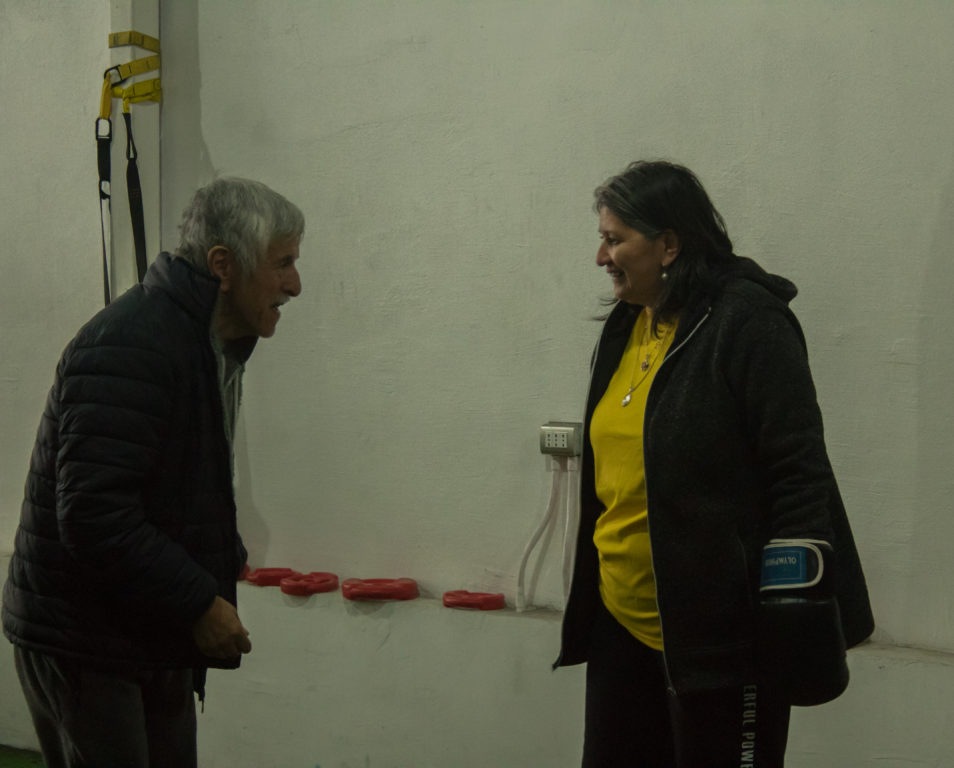
Los beneficios de la terapia de Neuroboxing se comienzan a notar a partir de los tres meses de entrenamiento. En el caso de Teresa Nova y Juan Riffo los cambios son evidentes. Además, no dejaron que la enfermedad tomara el control de sus cuerpos y mentes. Hoy, ambos, son personas más fuertes.
“Llevan entrenando con nosotros harto tiempo. Podemos decir que ellos ya están en un nivel avanzado, tanto Juan como Teresa, y que nos permite a nosotros como grupo centrarnos en los detalles”, agrega Miguel Pino.
El Parkinson es una enfermedad que hasta el momento no tiene cura. Por tanto, el tratamiento con fármacos y las terapias paliativas, como el deporte, son fundamentales para sobrellevar el trastorno.
En el futuro, se espera que este innovador proyecto se replique en otras partes del país, como Santiago, Talca, Linares, Laja y Los Ángeles, además de capacitar a más personas interesadas en el tema, dada la alta convocatoria que tuvo el curso, realizado este año, y donde incluso personas de otras regiones asistieron.
El programa ya está dando que hablar. De hecho, el pasado mes de junio un grupo de entrenadores de Neuroboxing Parkinson asistió al World Parkinson Congress, en Japón. Una instancia que reunió a personas de todo el mundo que lideran programas para pacientes con Parkinson y donde los jóvenes profesionales también pudieron presentar su innovador método.
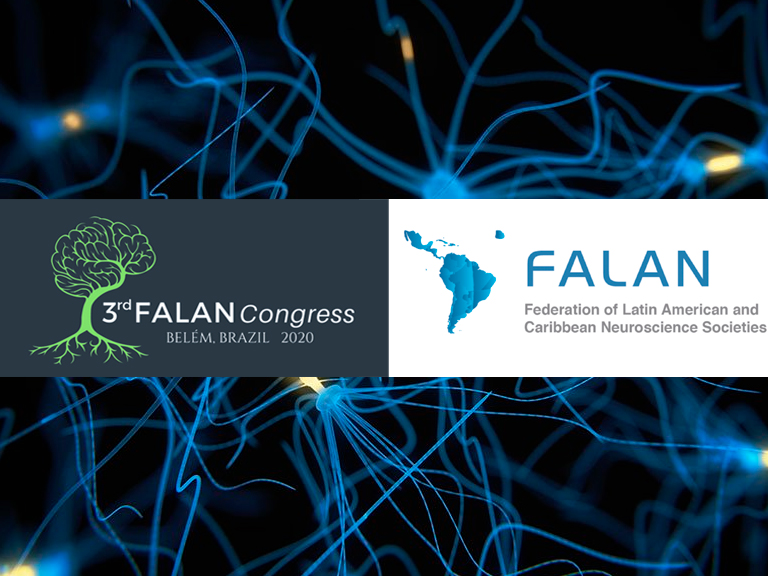
Dear Colleagues,
As previously announced, the 3rd FALAN Congress will take place in Belém do Pará from 14th to 17th September 2020.
The Scientific Committee is in the process of planning the conference. To ensure that a broad cross-section of disciplines within the field are represented in the program, the Scientific Committee invites you to submit a symposium proposal, so that you can have significant input into the intellectual content of the meeting.
Proposals should be submitted to the Scientific Committee by accessing the following link: http://sbnec.org.br/falan/propostas/index.php
More information HERE

Personas que presentan violentos movimientos mientras duermen pueden, en los siguientes 10 o 15 años, ser diagnosticados como portadores de enfermedades neurodegenerativas. Lesión en un pequeño núcleo del cerebro que regula parálisis durante una etapa del sueño permite que la intensa actividad imaginaria nocturna se convierta en una acción motora.
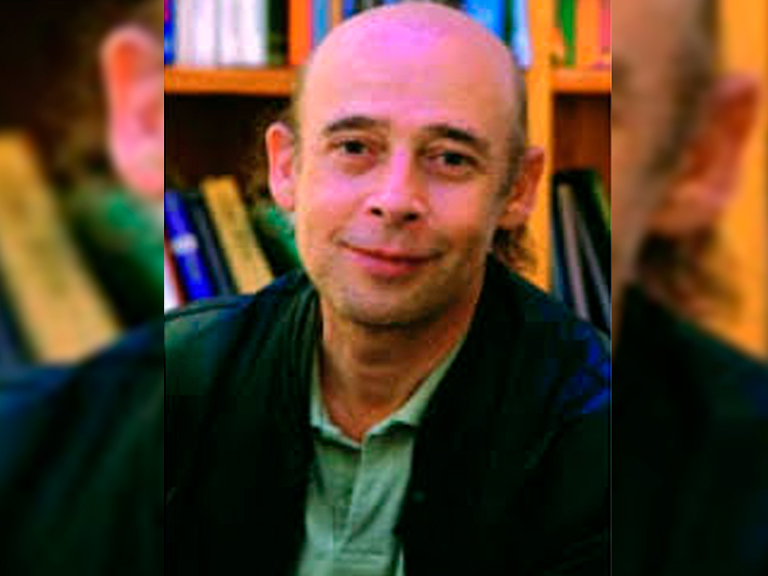
Dr. Patricio Rojas
Presidente
Sociedad Chilena de Neurociencia

Una nueva proteína involucrada en la enfermedad de Alzheimer (EA) ha sido identificada por los investigadores. CAPON puede facilitar la conexión entre los dos culpables de EA más conocidos, las placas amiloides y la patología tau, cuyas interacciones causan la muerte de las células cerebrales y los síntomas de demencia.
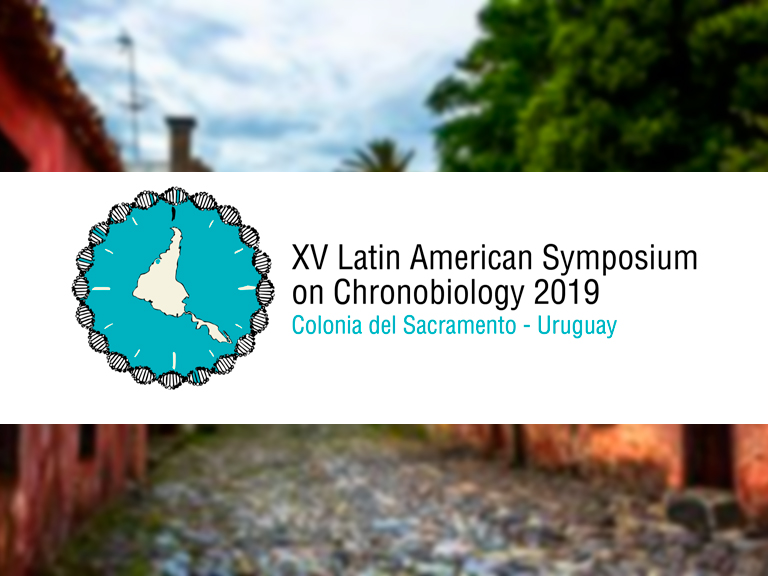
Dear Colleagues,
We are working very hard in the organization of the XV LASC 2019 and looking forward to seeing you all in Colonia del Sacramento, Uruguay next October.
We would like to thank you for your support and help in this challenging task that allowed us to organize a very exciting preliminary program with 45 speakers already confirmed among plenary, symposia, and the opening and closing round tables!! We are also thankful for the enormous number of applicants (more than 50!!) to the Latin American School on Chronobiology and Sleep, whose faculty list of 25 teachers is also confirmed.
According to the agencies that have already confirmed support to the XV LASC 2019, we will be able to cover the expenses of our plenary speakers, to give partial support to each selected symposium, and to give up to 30 students/postdocs’ registration fee waivers. In addition, students selected to attend the Latin American School on Chronobiology and Sleep will have all their expenses covered during their 2-weeks trip to Uruguay.
We now encourage you to register to the XV LASC 2019 at your earliest convenience, to get the best rates, through the website www.LASC2019.org. We remind you that Early Registrations and Abstract Submission are open until June 30, 2019.
We are totally aware that the difficult situation of Argentinian science system and of the science budget cutoffs recently announced in Brazil may affect some participants’ ability to cover the costs of attending the XV LASC 2019. Due to our successful fundraising we will be able to consider a reduced registration fee for colleagues in extenuating circumstances that need this support. We ask those interested to contact us at lasc2019@fundaciba.uy to let us know about their situation and the percentage of the registration fee waiver they might need. We will do our best efforts to consider as many participants as possible.